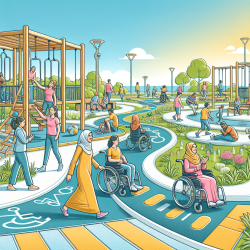Recent research underscores the critical role of play in fostering social and communication development in autistic children. The scoping review, "Play-based interventions to support social and communication development in autistic children aged 2–8 years," highlights key insights and practical applications for practitioners.
Key Findings:
- Diverse Intervention Types: The review identified various play-based interventions, from feedback-based approaches to technology-assisted therapies. Each type has unique strengths and considerations, offering a range of options for practitioners.
- Role of Play: Interventions were categorized based on the role of play—whether it served as a key mechanism, a context, or a component. Understanding this helps practitioners choose the most suitable approach for each child.
- Child-Led vs. Adult-Led: The level of child control in play activities varied. Child-led interventions, where the child’s interests guide the play, were found to be particularly effective in engaging children and promoting intrinsic motivation.
Implications for Practice:
- Customized Interventions: Practitioners should tailor interventions to each child’s needs, considering the role of play and the level of child control. This personalized approach can enhance engagement and outcomes.
- Inclusive Practices: Ensuring diverse representation in intervention studies is crucial. The review highlighted the under-representation of girls and minority groups, suggesting a need for more inclusive research and practice.
- Evidence-Based Decision Making: Using the conceptual framework from the review, practitioners can better appraise play-based interventions, aiding informed decisions in collaboration with families.
By integrating these findings into practice, therapists can create more effective, enjoyable, and meaningful interventions for autistic children. The power of play, when harnessed thoughtfully, can unlock significant developmental gains.
To read the original research paper, please follow this link: Play-based interventions to support social and communication development in autistic children aged 2–8 years: A scoping review.










